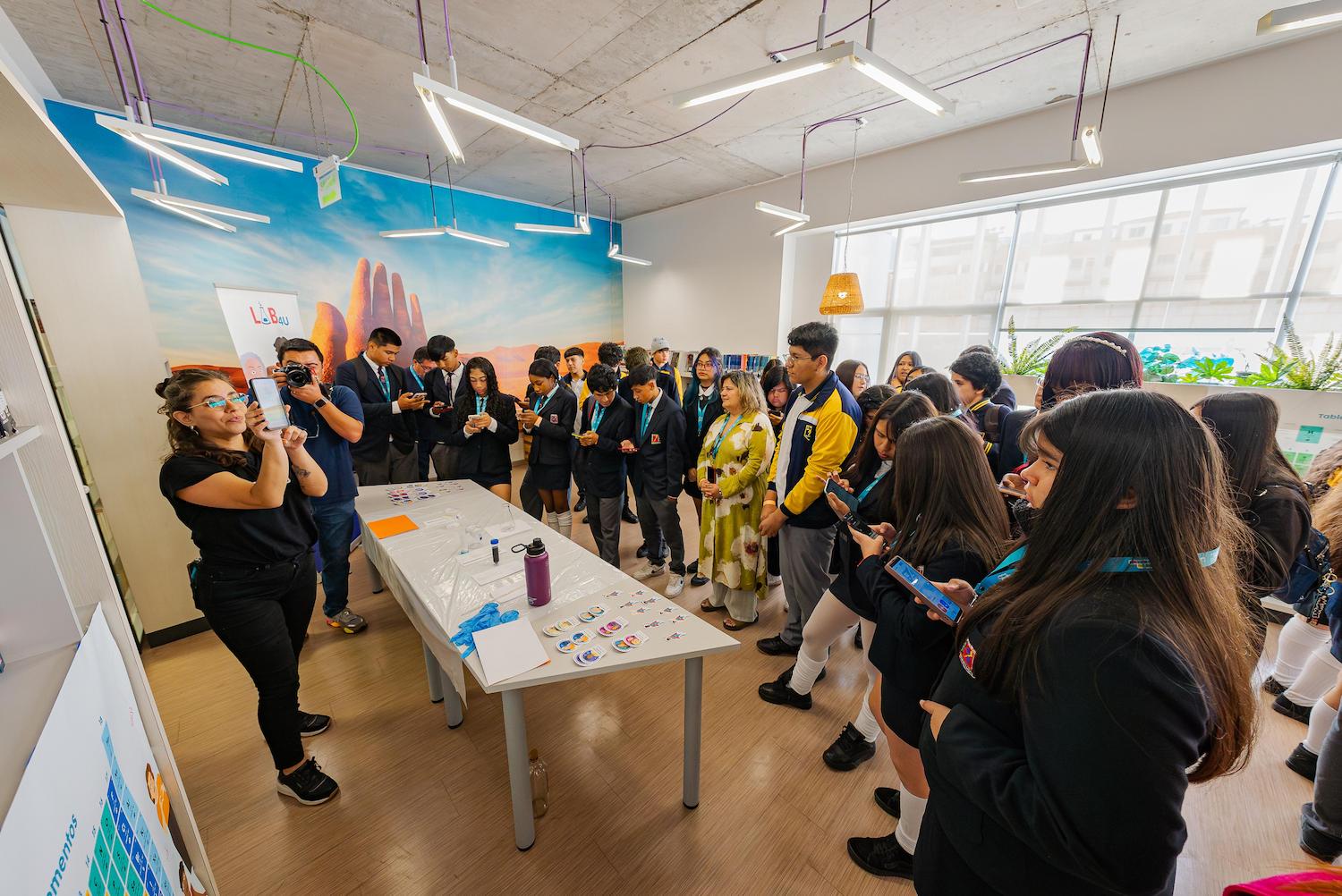News
SQM Iodine Plant Nutrition and Lab4U successfully complete fourth edition of innovative science learning program NorTEduca

During the four years since its founding, the alliance has benefited over 6,200 students and 76 teachers in the Tarapacá and Antofagasta regions by promoting STEM (science, technology, engineering and mathematics) skills and empowering future employment. UN figures estimate that by 2050, 75% of the world's jobs will be in STEM-related fields.
November 2024 – A new educational milestone was celebrated in Pozo Almonte, Tocopilla and Antofagasta with the closing of the fourth version of the NorTEduca program, a partnership between SQM Iodine Plant Nutrition and the Chilean EdTech startup Lab4U, created to help improve the quality of science education in schools in northern Chile looking to develop and enhance talent and improve the future job prospects of young people.
The 2024 version included seven schools: Liceo Bicentenario Metodista William Taylor of Alto Hospicio and Liceo Alcalde Sergio González Gutiérrez of Pozo Almonte in Tarapacá; Liceo Mayor General Oscar Bonilla and Liceo Industrial Eulogio Gordo Moneo (both in Antofagasta); Escuela Carlos Condell de la Haza, Liceo Politécnico Diego Portales and Colegio Sagrada Familia, the last three in Tocopilla.
During the four years since its founding, NorTEduca has impacted more than 6,200 students and 76 teachers from 13 schools in the Tarapacá and Antofagasta regions, totaling 439 experimentation sessions.
The program introduced innovative methodologies, concrete materials, didactic strategies and on-site support for parents and teachers, building a learning community around the teaching of STEM (science, technology, engineering and mathematics) skills in students from seventh to twelfth grade, making a concrete contribution to improving the quality of education in northern Chile with a focus on the mining industry.
The NorTEduca program is framed within the educational challenges of today’s world. UN figures estimate that by 2050, 75% of jobs in the world will be in STEM-related fields. Therefore, this year NorTEduca reaffirmed its purpose of generating talent for the future workforce, developing teaching strategies to motivate young people and boost their interest in these in-demand careers.
For SQM Iodine Plant Nutrition, the completion of the program demonstrates the organization’s long-standing sustainable commitment to the community and the environment. Pablo Pisani, Community Affairs Manager for SQM Iodine Plant Nutrition, commented: “We are very proud to wrap up this program, which has been gaining force over the past four years. Our purpose is to develop unique capabilities that transform resources into life and progress, and this educational program is one such example. From an early age, we are helping strengthen the students’ educational process, with innovative learning methods that equip them with new capabilities and tools.”
Scientist Komal Dadlani, CEO and co-founder of Lab4U, a Chilean company that seeks to democratize the sciences through an app that turns cell phones into experimental tools for the classroom. “We are proud and pleased to have partnered with the NorTEduca program for the last four years, helping girls, boys and young people in Tarapacá and Antofagasta see science as a learning option and a future career. The student and teacher beneficiaries show how the long-term alliance with SQM Iodine Plant Nutrition helps us train future professionals with the skills and knowledge needed to enter the mining industry and use their talent in progressive, high-tech jobs,” she said.
According to José Ortiz Arboleda, a student from Tocopilla and participant in the SQM Iodine Plant Nutrition NorTEduca Program in two local schools, this experience has transformed his vision of science: “Thanks to Lab4U, classes at Escuela Carlos Condell de la Haza and Liceo Politécnico Diego Portales are now practical and interactive, integrating technology that makes learning more dynamic and fun.” With these tools, José explores freely, safely experimenting with simple materials. This experience led him to present his innovative heavy metal recapture project at an international STEM fair in Lima, Peru. Meanwhile, teacher Robinson Herrera from Liceo Alcalde Sergio González Gutiérrez in Pozo Almonte highlights the program’s transformative impact on science learning. “This tool has made it possible to address abstract, complex topics inclusively, facilitating learning for students with special educational needs as well as advancing gender equity by making the role of women in science more visible,” he says.
The program not only motivates students to explore chemistry, physics and biology, but has also led teachers to rethink their teaching strategies, thanks to resources like educational kits, guided experiences and ongoing assistance. “Some of the first evidence of impact is how students in third and fourth grade apply what they have learned autonomously, and many opt for careers related to science or engineering,” says Herrera.
In addition, the use of cell phones in the classroom breaks with stereotypes, encouraging collaborative work and the study of science. Thanks to the program, students have participated in national and international STEM fairs and congresses as far as Mexico and Peru, highlighting their talent and commitment to science.
